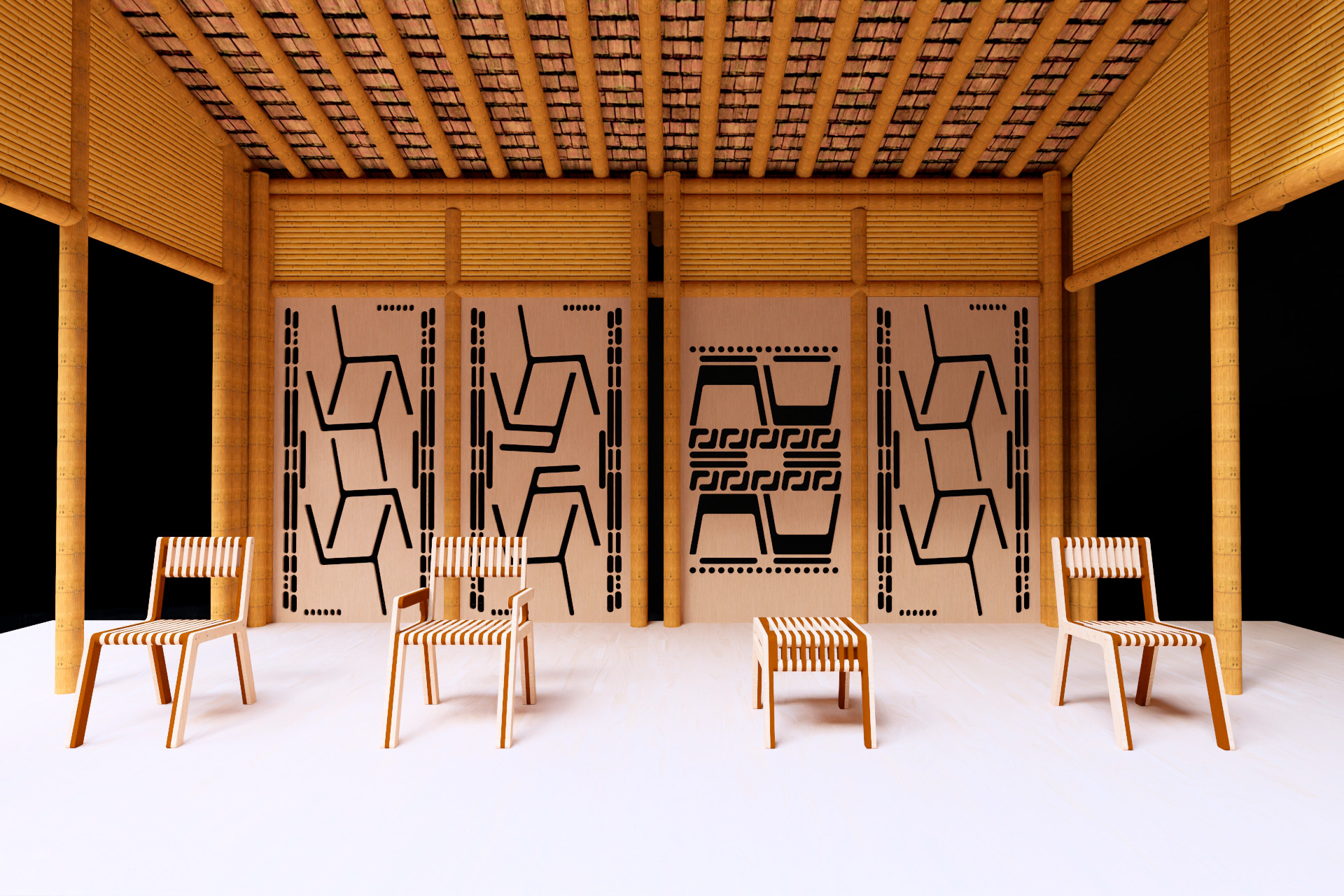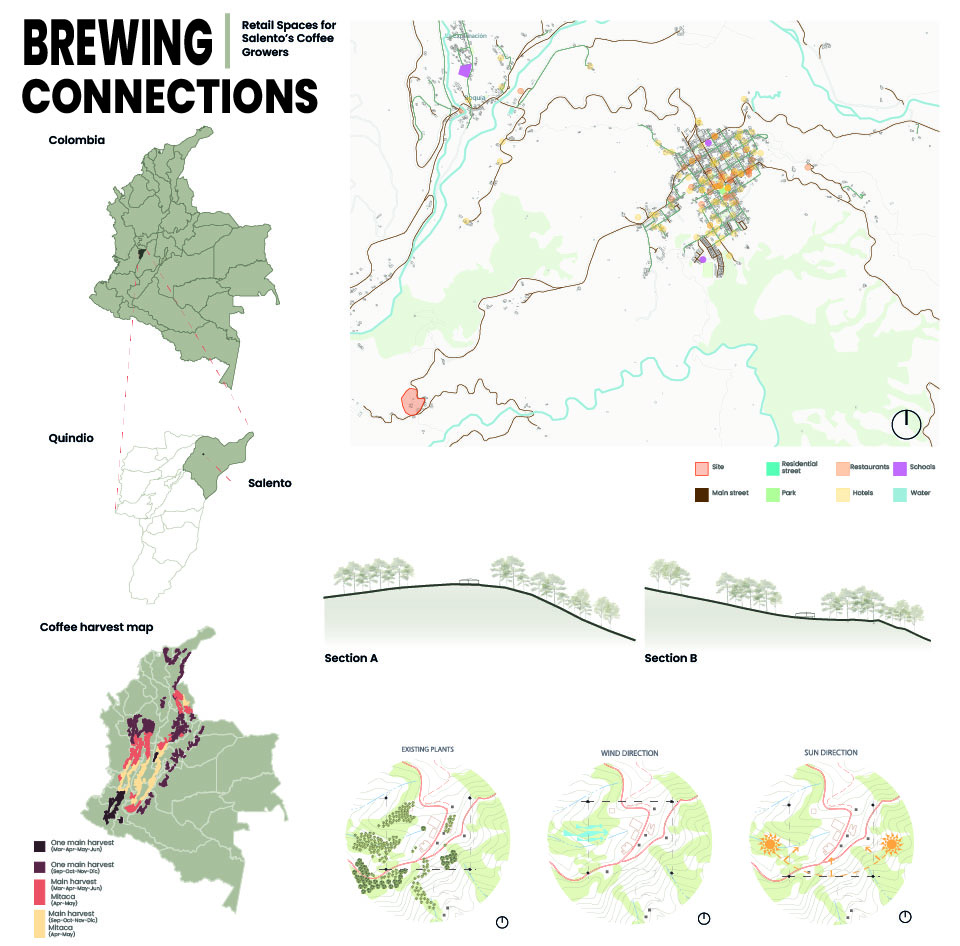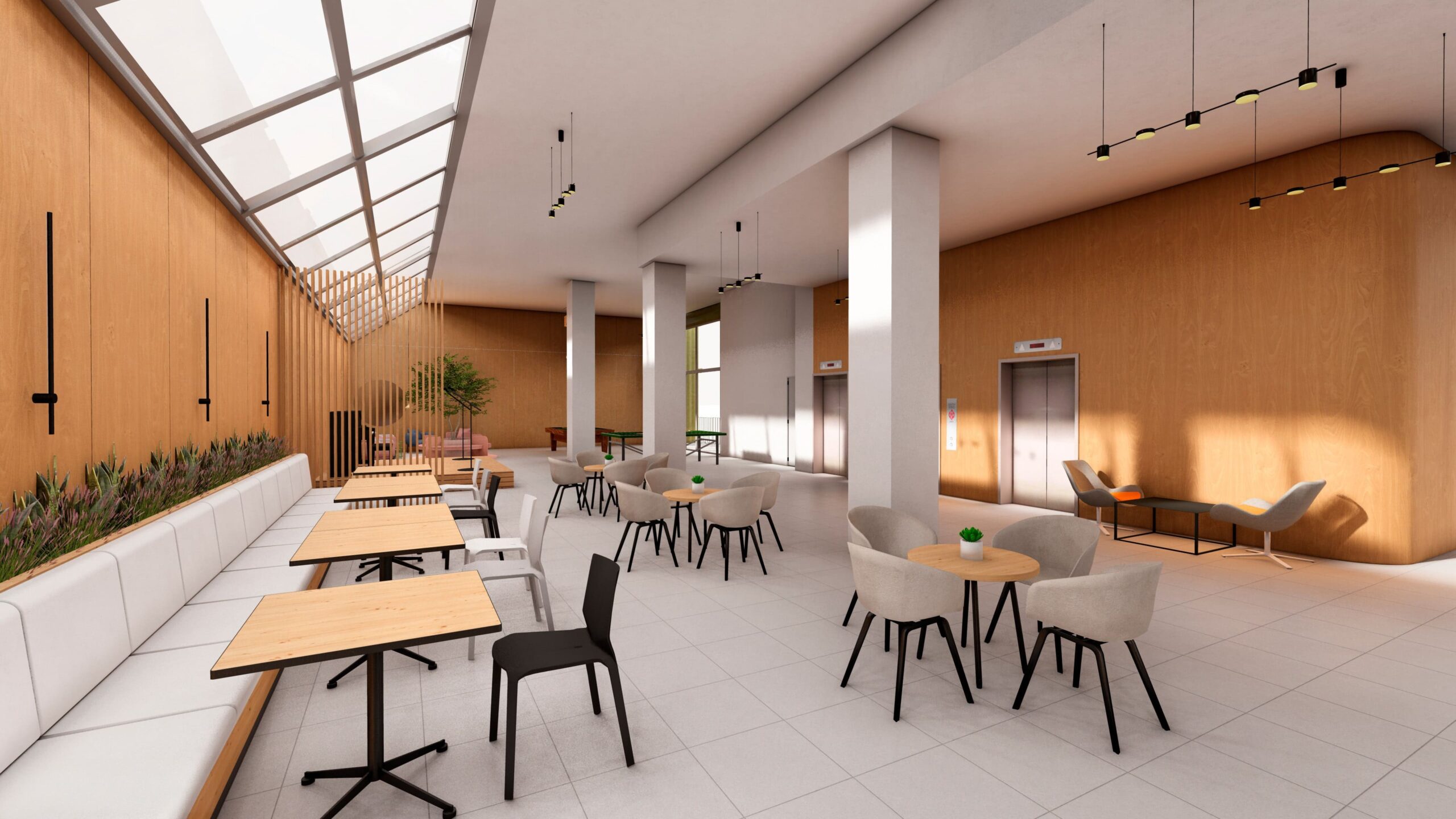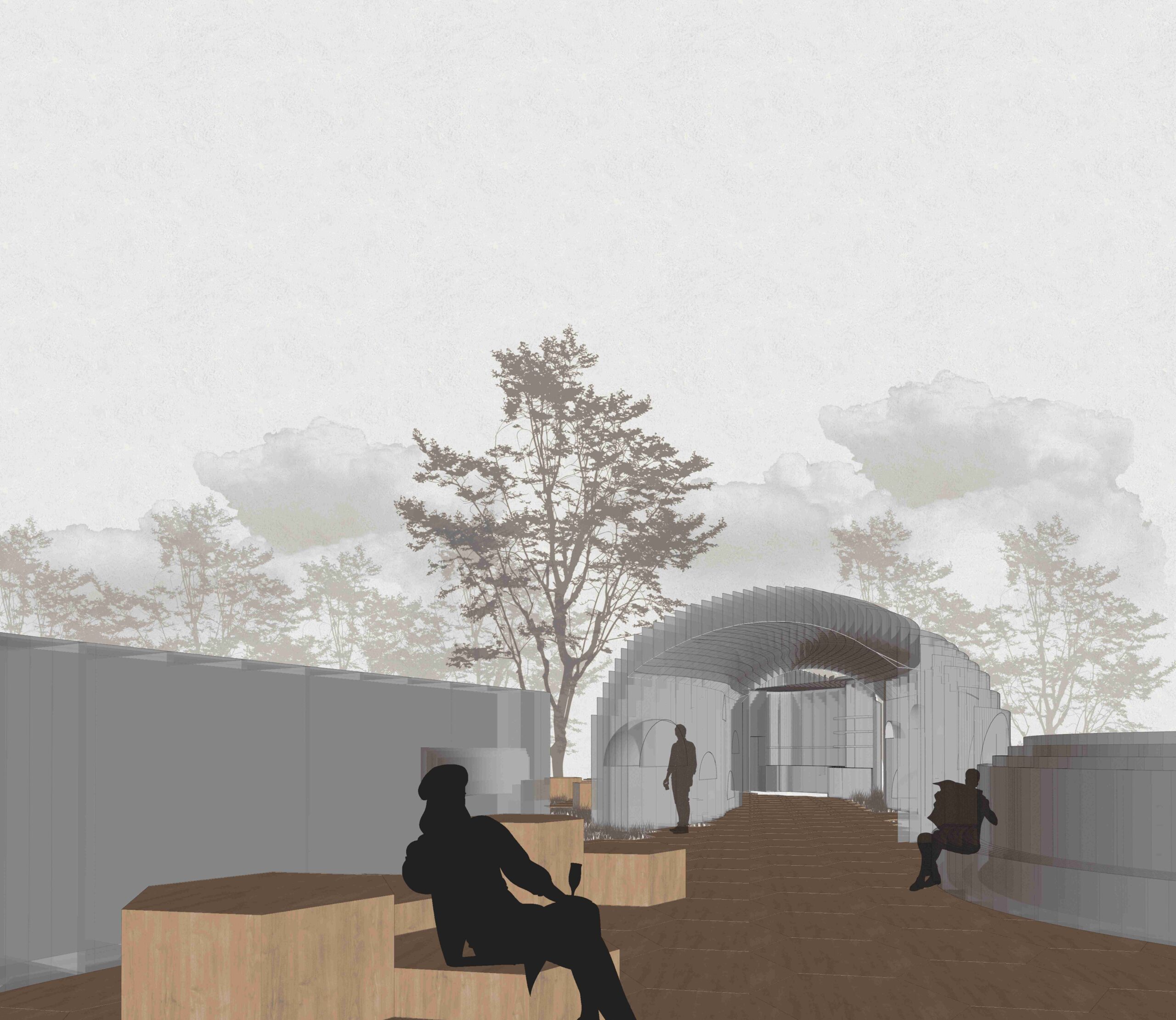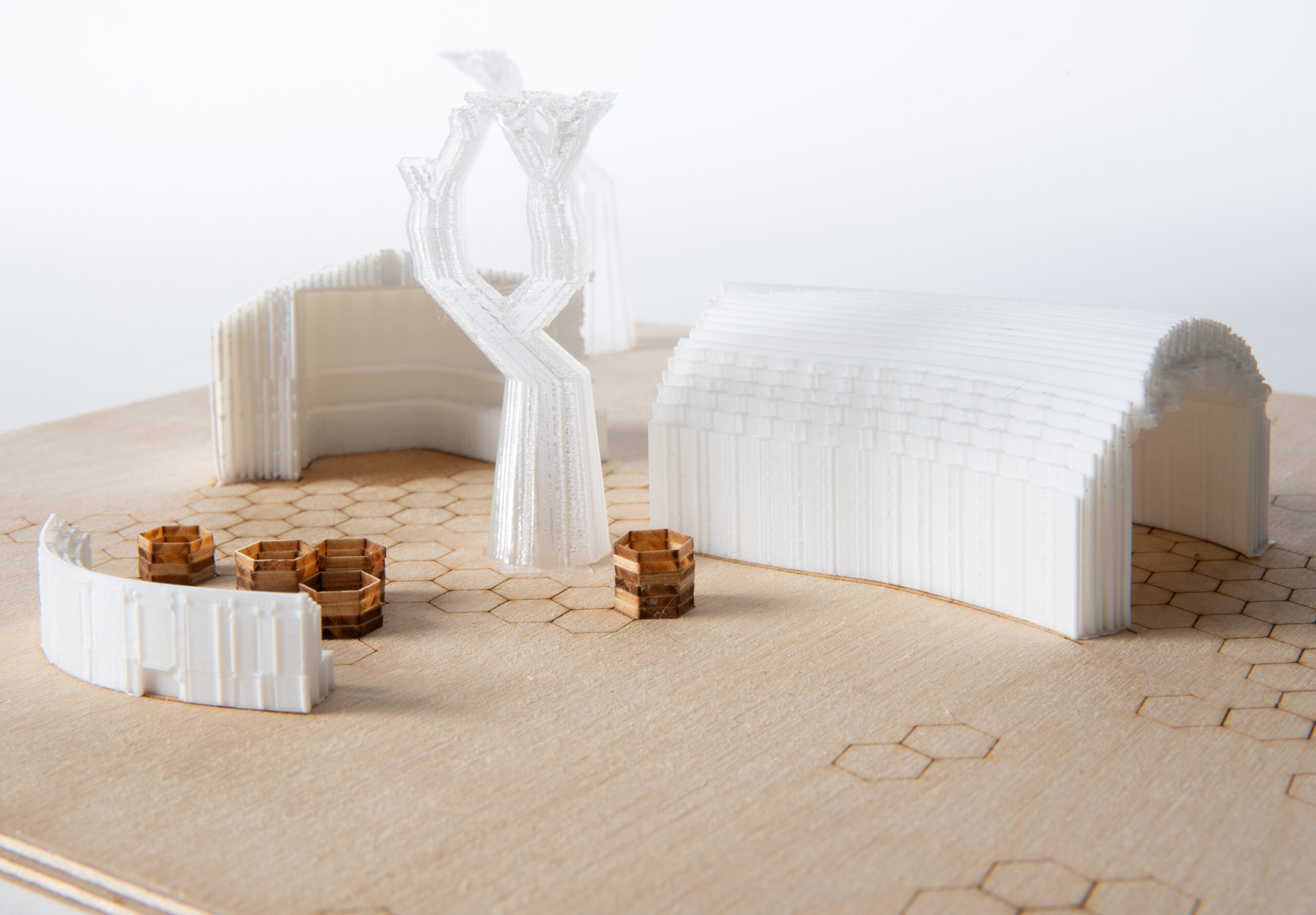In her thesis, Andrea explores the design of modular, sustainable kiosks as micro-business spaces for coffee vendors in rural Colombia, particularly within existing coffee farms. Recognizing the essential role small-scale vendors play in preserving and sharing the country’s coffee heritage, her project integrates locally sourced wood, sustainable construction methods, and CNC-fabricated components to create adaptable, cost-effective structures that respond to diverse user needs and environmental conditions.
Rooted in vernacular architecture, the design balances tradition with contemporary digital fabrication techniques to enhance accessibility and affordability. Andrea’s research asks: How can modular architecture support local economies? How can CNC technology enable sustainable construction while preserving cultural identity?
Situated in Salento, Colombia (a UNESCO-recognized coffee-growing region) her project addresses critical factors such as climate adaptability, ease of assembly, and minimal environmental impact. Through site analysis, material studies, prototyping, and parametric design testing, Andrea proposes a replicable architectural framework that empowers local vendors while maintaining the cultural and ecological integrity of their surroundings. Ultimately, her work contributes to broader discussions on sustainable rural development, prefabrication, and the intersection of digital and vernacular design strategies.
